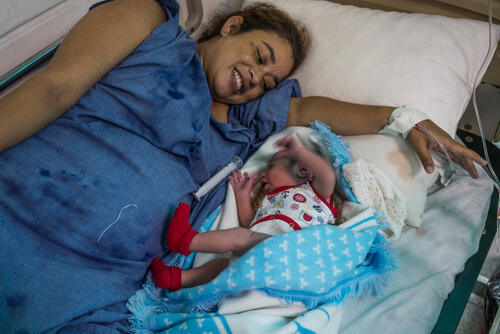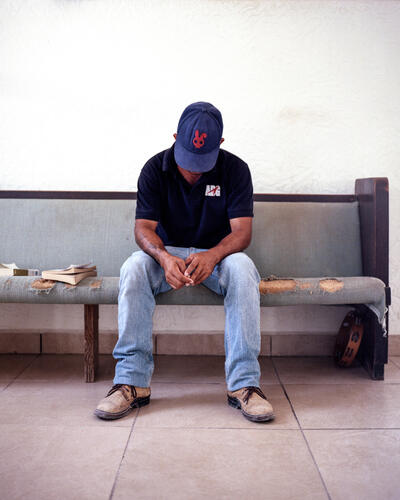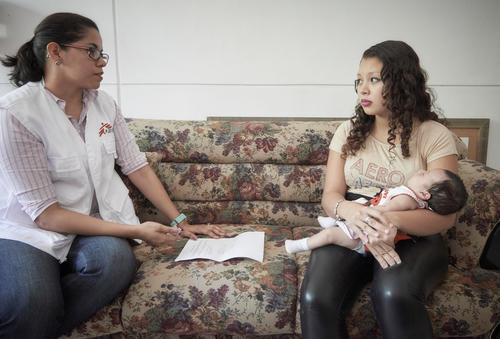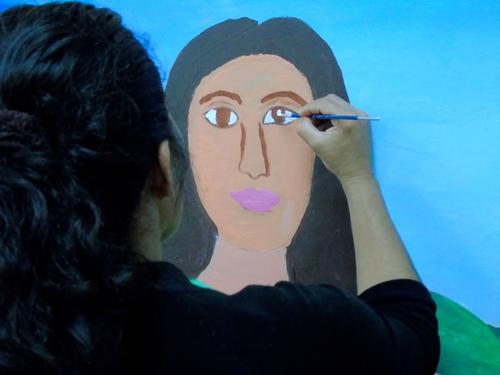In this extract from Desperate journey: Fleeing invisible wars in Central America, published by MSF's US office, MSF psychologist Ámbar Assaf recounts her experience and that of patients she has seen at La López clinic in Choloma, Honduras.
The sky over the La López clinic is clearing after torrential rains as MSF psychologist Ámbar Assaf gazes out through the bars of the heavy iron gate to the street beyond. At the edge of the clinic’s sandy parking lot, chickens scratch in the wet grass by the fence. Assaf is here to work her afternoon shift at the clinic, but fears that the storm might keep patients away.
“People here are deeply affected by violence, especially women,” she says. “The patients I see are mostly young women between 15 and 35 years old.
Physical violence, psychological violence—sexual violence is extremely common. I see a lot of women who suffer from depression because they’ve experienced violence and normalised it as a defence mechanism.”
Assaf and her team work with patients to help them process their experiences and regain some semblance of control over their lives. But the pervasiveness and intensity of the violence in Choloma can leave deep scars.
“One of the cases I remember most was a family,” says Assaf. “A pregnant woman with two kids, one six years old and one eight. One day the husband didn’t come home.” Neighbours later found his body lying in the street and went to tell the woman.
“She took her kids, and they saw—he was killed in a hit, strangled, and the body was in really bad shape. The kids saw everything. You see cases like this all the time in this area.”
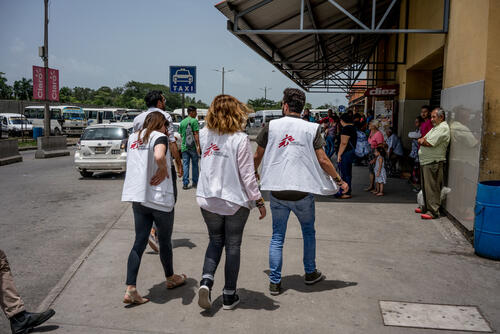
We’ve all seen people killed in the streets. We can’t change the situation here, but we can support the people who have to live with the violenceMSF psychologist Ámbar Assaf
The family was referred to a witness protection programme and moved to another town two hours away, joining the ranks of the thousands who have become internally displaced in Honduras.
But even with the move, they still don’t feel safe, says Assaf, and being forced to leave the city has also cut them off from social networks and economic opportunities.
“The mother will give birth in one month. And she’s considering returning to Choloma, because there are no jobs in the town where they fled,” she says.
The MSF outreach team worked with the children to provide emotional support and build coping mechanisms as they mourned the loss of their father.
But the family is still faced with an impossible choice, one familiar to many people in Honduras: stay and risk your life at home, or risk your life on the move, gambling on a better future.
“There are so many needs in this area,” says Assaf, who lives in nearby San Pedro Sula. “The more we work, the more needs we see. We’ve all seen people killed in the streets. We can’t change the situation here, but we can support people who have to live with the violence.”
Choloma is the third largest city in Honduras, with an official population of some 250,000 people, though the actual figure is likely much higher. Home to many factories, known locally as maquilas, the city attracts people from across the country who come here looking for work. But low wages and abysmal working conditions mean that many still live in poverty.
Crime is both endemic and rampant in Choloma, and women and girls are often most at risk. Here, as in Tegucigalpa, MSF teams offer mental and sexual and reproductive health care services, with a focus on care for survivors of sexual violence.
In spring 2017 MSF teams began supporting a local Ministry of Health clinic in Choloma that was struggling with budget and staff limitations. The facility now provides sexual and reproductive health services and emergency care, and helps pregnant women avoid overcrowded public hospitals.
Elsewhere in Choloma, MSF outreach teams provide preventive and curative services, including health education and counselling, twice weekly at another clinic in the La López neighbourhood.



